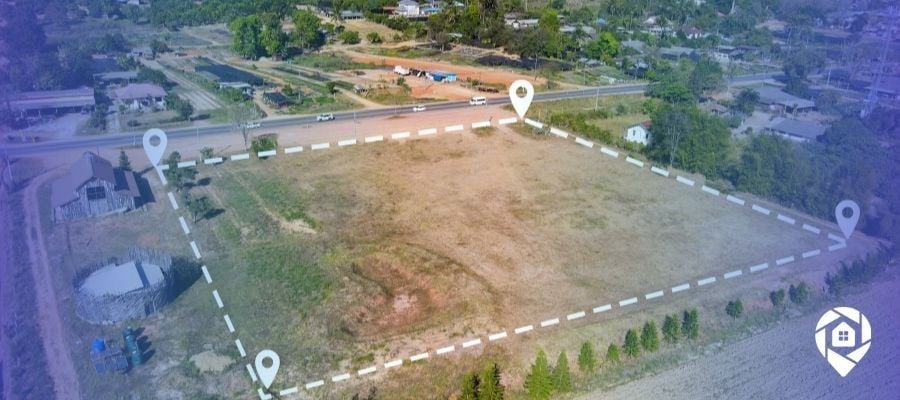
Virtual Real Estate Wholesaling: How Eric Cline Scaled to $2.6M Without Seeing a Property

The Power of Action Over Anxiety
Eric Cline built a virtual real estate wholesaling business that generated over $2.6 million in revenue, all without ever stepping inside a property. Operating across three states, he relied entirely on phone conversations, structured processes, and daily consistency to achieve his goals. His results came not from complexity, but from discipline and simplicity.
This blog breaks down Eric’s strategy, showing how anyone can replicate his system through filtered lead targeting, daily execution, and a five-step sales process that converts conversations into contracts.
Eric’s Market Strategy and Data Filters
Eric’s lead selection strategy prioritized quality over quantity. Rather than casting a wide net, he used strict filters to identify sellers with both the need and ability to sell. These criteria allowed him to focus on owners most likely to respond to a cash offer and move quickly.
Eric’s lead filters included:
- ARV (After Repair Value): $350,000 or less
- Equity: Between 30% and 100%
- Ownership duration: 10+ years
- Property age: At least 15 years old
- Ownership type: Excluded LLCs and trustees
- Occupancy: Absentee and owner-occupied properties
These filters signaled long-term homeowners, often with deferred maintenance or lifestyle changes. Eric’s targeted approach minimized time spent chasing unqualified leads.
Daily Habits and KPIs That Drove $2.6M in Revenue
Eric’s business was built on predictable, measurable activity. He tracked what he could control and used key performance indicators (KPIs) to maintain momentum.
His daily KPIs were:
- 60+ outbound calls per day (calls had to ring at least three times)
- 3 to 6 hours of seller talk time
- 3 to 4 offers made daily
Even with five cold callers on his team, Eric made his own calls to convert high-quality leads. Talk time was his primary lever: more conversations meant more opportunities to build trust and close deals.
Watch this short video to hear Eric explain how he built his $2.6M virtual wholesaling business—from daily dials to closing deals without stepping inside a single home.
Why Talk Time Is Essential in Virtual Real Estate Wholesaling
Talk time is a critical success metric in wholesaling. It’s not enough to make dials. Investors must engage in real conversations.
Increased talk time results in:
- Stronger rapport
- Better data collection
- More tailored offers
- Higher close rates
Eric consistently achieved 3 to 6 hours of talk time per day, which allowed him to uncover seller motivations and guide conversations effectively.
Eric’s 5-Step Real Estate Sales Call Process
Eric followed a structured, repeatable process for every call. This approach kept sellers engaged and moved them toward a confident yes.
Step 1: Introduction
Eric began each call with professionalism and purpose:
“Hi, this is Eric with ABC Home Buyers. I was reaching out about your property. It was referred to me by a referral company, and I wanted to see whether or not the property qualifies.”
This phrasing shifted the seller’s mindset from resistance to curiosity.
Step 2: Fact-Finding
This was the most important stage. Eric gathered key information without overwhelming the seller:
- Age, marital status, and family context
- Rental income and management responsibilities
- Length of time considering a sale
He used conversational phrasing, like “potentially interested in selling”, to reduce pressure and encourage openness.
Step 3: The Pitch
Eric tailored his value proposition based on what the seller had shared. He avoided canned scripts, focusing instead on relevance and clarity.
Step 4: The Offer
His offers were structured with room to negotiate. He started with a figure that allowed flexibility, giving him space to improve the offer if needed.
Step 5: The Close
When the previous steps were handled properly, the close became a natural conclusion. By this point, sellers had context, trust, and clear reasons to move forward.
Addressing Objections With Data and Empathy
Eric used objection prevention strategies early in the call. For example, he asked sellers to write down his full contact details at the start of the conversation, which established transparency.
When a seller hesitated, Eric used logic to guide the decision.
Example scenario:
- Seller is 68 years old
- Property rents for $650/month
- Offer is $110,000
He walked them through the math:
- $650 × 12 = $7,800/year gross
- After taxes/insurance ≈ $6,600 net
- $110,000 ÷ $6,600 = 16.6 years to earn the same amount
“At 68 years old, do you want to manage a rental for another 16 years? When’s the last time you had $110,000 in your bank account?”
This method respected the seller’s intelligence while reframing the conversation around time and peace of mind.
How Eric Scaled His Virtual Wholesaling Business
Eric scaled only after proving his system was effective. He used data and discipline, not guesswork.
His scaling strategy included:
- Delegating lead generation to cold callers
- Maintaining control of high-stakes calls
- Tracking weekly and monthly KPIs
There were no shortcuts—just mastery of a simple, effective model.
Key Phrases That Built Trust and Closed Deals
Eric used strategic language to lead conversations and reduce friction:
- “Let’s see whether or not the property qualifies.”
- “I want to see whether we’re a good fit.”
- “Grab a pen and paper real quick.”
- “Let me recap what we discussed.”
- “When’s the last time you had access to [$X] in your bank account?”
These phrases signaled structure, professionalism, and respect.
Common Pitfalls for New Wholesalers
New investors often get stuck thinking about buyers before locking up a contract. Eric’s focus was always on the front of the funnel:
- Identify motivated sellers
- Execute daily KPIs
- Build trust through talk time
- Deliver multiple offers consistently
Simplicity and repetition are what moved his business forward.
Building Connection in a Virtual Environment
Even without face-to-face meetings, Eric created a connection by:
- Setting expectations clearly
- Using empathetic, direct language
- Offering transparency early in the call
He replaced the handshake with a human conversation—one built on honesty, math, and mutual understanding.
Final Thoughts: Discipline Drives Results
Eric’s path from zero to $2.6 million wasn’t based on secret tactics. It was built on disciplined execution.
His success formula included:
- Strict lead criteria
- Consistent daily KPIs
- Structured conversations
- Data-backed objection handling
Ultimately, his results came from believing in his process and himself.
“The biggest sale you’ll ever make is the one you make to yourself. Close yourself first. Then start dialing.”
Frequently Asked Questions
Q1: What is virtual real estate wholesaling?
Virtual wholesaling is the process of securing and assigning wholesale real estate contracts without visiting the property. It’s done entirely through phone calls and digital paperwork.
Q2: How can I start wholesaling virtually with no experience?
Begin with a small, affordable market. Use data filters to target motivated sellers, and track daily activity: dials, talk time, and offers. Focus on discipline, not perfection.
Q3: What script works best for cold calling real estate sellers?
A strong script includes a clear intro, qualifying language, trust-building steps, fact-finding, and a tailored offer. Eric’s five-step process is an effective model.
Q4: How many calls do I need to make to get a real estate deal?
Most virtual wholesalers make 60–100 calls per day. Consistent output—paired with real conversations—creates the momentum needed to land deals.
Q5: Is virtual wholesaling legal in every state?
Virtual wholesaling is legal in many states, but laws vary. Consult a local real estate attorney to ensure your process complies with local regulations.

About Maria Tresvalles
Maria Tresvalles is the dynamic Marketing Specialist at DealMachine, where she has been a key player for the past five years. With a strong background in customer relations, Maria started her journey at DealMachine as a Customer Success Coordinator, where she honed her skills in understanding customer needs and driving satisfaction.



